The Best Hearing Aid Companies
Hearing aids are small electronic devices worn in or behind the ear that amplify sounds for those with hearing loss. Did you know that of the reported 48 million Americans suffering from some form of hearing loss, only 20% of people who could benefit from hearing aids actually use them?
Being hard of hearing can make general social interactions difficult and could lead to a more reclusive lifestyle. If you are considering purchasing a hearing aid take the time to review this article in detail. Based on our findings the best companies to buy from are:
- Eargo
- Audicus
- MD Hearing Aids
- Zip Hearing
- Hear.com
- Hear Better
- @Otofonix
- Lexie
- Phonak
Learn more about each of these companies below.
Before and after you dig deep into each company to find the right hearing aid – take the time to read the additional sections about hearing loss, the different types of hearing aids, and key questions to ask when selecting the hearing aid.
What is a Hearing Aid?
You might be surprised how many of your friends and colleagues have hearing aids. Most times you won’t even notice them in or behind the ear. The small electronic devices are designed to make some sounds louder. This helps if you have some form of hearing loss so you can listen, communicate and be able to participate.
What are the main parts of a hearing aid?
If you open up a hearing aid you will find three basic parts – the microphone, amplifier, and speaker. This will bring in sound, make it louder and transmit them to your ear.
What are the common causes of age-related hearing loss?
As outlined in a recent article on hearing loss, there are many causes of age-related hearing loss. Most commonly, it arises from changes in the inner ear as we age such as damage to the tiny hair cells inside your inner ear, but it can also result from changes in the middle ear, or from complex changes along the nerve pathways from the ear to the brain. Certain medical conditions and medications may also play a role. Other potential causes of hearing loss include:
- Repeated exposure to loud noises
- Family history (age-related hearing loss tends to run in families)
- Certain medical conditions (such as diabetes)
- Certain medicines (such as chemotherapy drugs for cancer)
What are the different types of Hearing Aids?
Each of the hearing aids listed in this article will be one of three types: Behind-the-Ear (BTE); In-the-Ear (ITE) or Canal fit.
Each of these styles offers something slightly different for your aging loved one. The BTE is a hearing aid in hard plastic worn behind the ear. The ITE is entirely inside the outer ear. Canal aids fit into the ear canal and are available in two styles. The in-the-canal (ITC) hearing aid is made to fit the size and shape of a person’s ear canal. A completely-in-canal (CIC) hearing aid is nearly hidden in the ear canal.
What questions should I ask before buying a hearing aid?
Before you buy a hearing aid, ask your audiologist these important questions and think about what hearing aid features matter most to you:
- What is the battery life like? Do the hearing aids have rechargeable batteries?
- Is the price affordable? What is the total cost of the hearing aid(s)?
- Do I need a custom-fit hearing aid?
- Do I have mild, moderate, or severe hearing loss?
- How well does the hearing aid work in noisy environments?
- Is there a trial or test period?
- How long does the warranty last?
- What does the warranty cover?
The Best Hearing Aid Companies
The best hearing aid companies and manufacturers offer a mixture of options ranging from price, comfort, style, and much more. The top ten list below is a summary based on pre-reviewed companies, as well as cross-comparing to other reviews (customer rankings, etc.). Use the list below to get a quick understanding of what is available and what the hearing aid prices are. Then review in more detail each company’s profile.
| Company Name | Approximate Cost | Covered by Insurance | Financing Available |
|---|---|---|---|
| EARGO | $2,950 ($137/mo) (NEO HiFi) $2,350 ($109/mo) (NEO) $1,850 ($86/mo) (MAX) | Yes (Federal Employee Health Benefits) | Yes |
| AUDICUS | $899/ear (The Wave) $699/ear (The Aura & Clara) $499/ear (The Dia II) | No (contact provider for details) | No |
| MD Hearing Aid | $400/Pair | No (contact provider for details) | Yes |
| Zip Hearing | $2,000 - $4,800/Pair | No (contact provider for details) | Yes |
| Hear.com | $229/mo for Pair (Luxury) $199/mo for Pair (Premium) $169/mo for Pair (Advanced) $139/mo for Pair (Essentials) | No (contact provider for details) | No |
| Hear Better | $88 - $300/each | No (contact provider for details) | No |
| @otofonix | $745/Pair (Helix) $595/Pair (Encore & Sona) $395/Pair (Elite) $190/Pair (Apex) | No (contact provider for details) | No |
| Lexie | $49/mo for Pair | No (contact provider for details) | No |
| Phonak | $1931 - $3668 for Device | No (contact provider for details) | Perhaps (depending on the retailer) |
Eargo
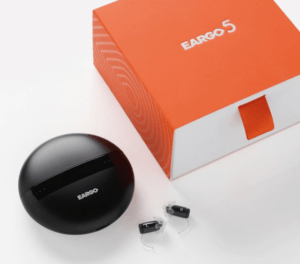
With Eargo you are accessing the state-of-the-art hearing aids, the personalized mobile app, and constant support from licenses hearing professionals. Eargo offers 3 different options: the Eargo Neo HiFi which provides a noise reduction and feedback cancellation feature, along with the best sound you can find. When you order Eargo Neo Hifi (for $2,600) you will receive a charger, 2-Eargo devices, flexi tetrapalms/fibers, wax guard, power cords, and a cleaning brush.
The Eargo NEO (at $2,350) is an excellent choice but without the noise cancelation features offered with the HiFi. The Eargo Max (at $1,850) uses the Flexi Fibers to provide excellent sound quality and enhancement at a more affordable price.
Audicus
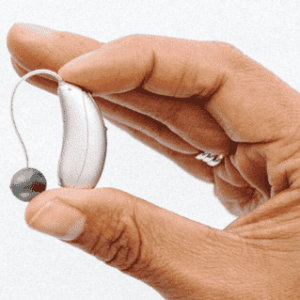
The wave ($899/ear) is an advanced product that merges Bluetooth and rechargeability for the first time. The Aura ($699/ear) has a unique micro design that allows you to discreetly boost your hearing without anyone knowing you’re wearing a hearing aid. The Clara ($699/ear) is the most popular hearing aid for Audicus and it adapts to your environment for crystal clear hearing in every setting. The Dia II ($499/ear) filters out background noise to focus on speech, offering sound quality and incredible value.
MD Hearing Aids
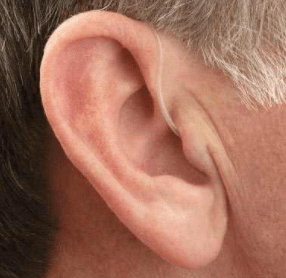
Unlike many hearing aid companies, MD Hearing Aids will offer 0% financing on purchases above $599. You have four hearing aid options with MD Hearing Aid: The Pro ($399), The Air ($399), the Volt+ ($599), and the Core ($999).
Zip Hearing
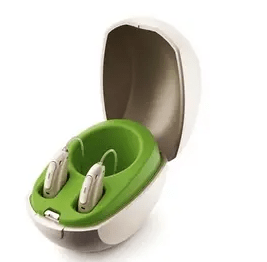
To get started, call Zip Hearing at 877-803-4438 and they will let you know who your local Zip Hearing provider is (in less than 3 minutes!). Next, contact your local provider to schedule your hearing consultation, and then enjoy your savings! You will find a wide variety of hearing aids from Phonak, Signia, Oticon, ReSound, Starkey, Widex, Bluetooth, and Rechargeable.
Hear.com
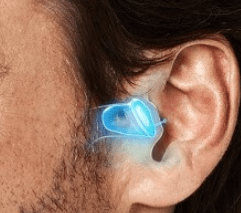
Hear.com customers, on average, pay between $139-$229 per month over 36 months for a pair of medical-grade hearing aids. But hearing aids last 5 years on average, so over their lifetime, this comes out to $2.30 a day. These prices range from the Luxury, Premium, Advanced and Essentials hearing aid available.
Hear Better
Hear-better.com offers a large selection of digital hearing aids including the popular Siemens hearing aids line the will help you hear better. Other popular makers include the New Sound line, ranked as one of the most innovative in the world. The budget shopper will enjoy their own Doctor Paul line of hearing aids which are low cost and highly effective at helping you hear better. When you shop at Hear-better.com, you will be able to choose between in-ear hearing aids that are small, lightweight, comfortable to wear and offer many powerful features.
@otofonix

Lexie

Phonak
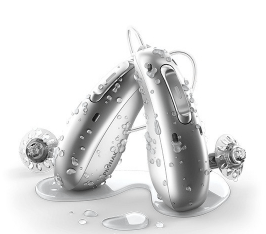
Summary
Hearing aids are a necessity if you have any form of hearing loss. Better yet, they can improve brain function and memory. Discuss your needs with your physician and review the many options available to you, today!
